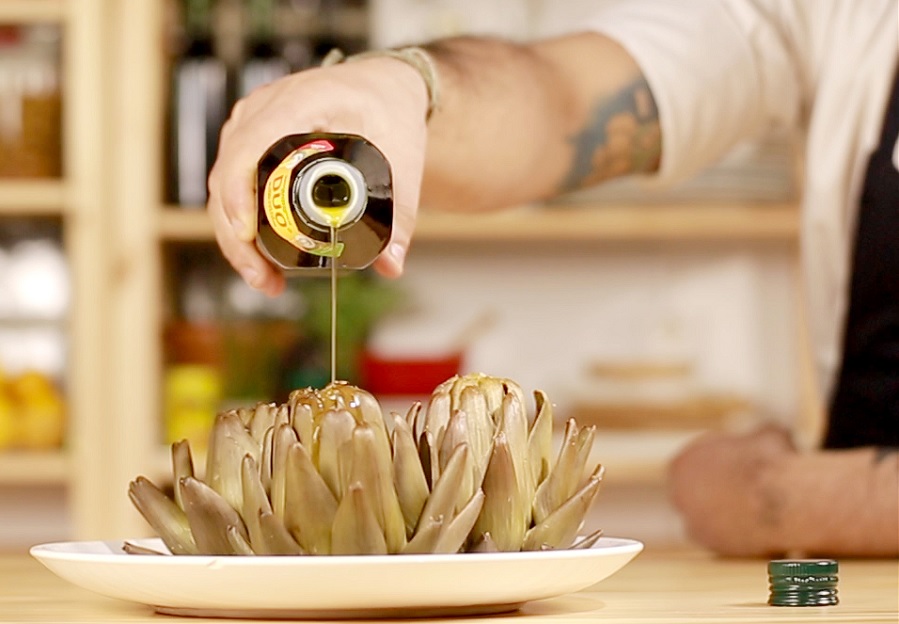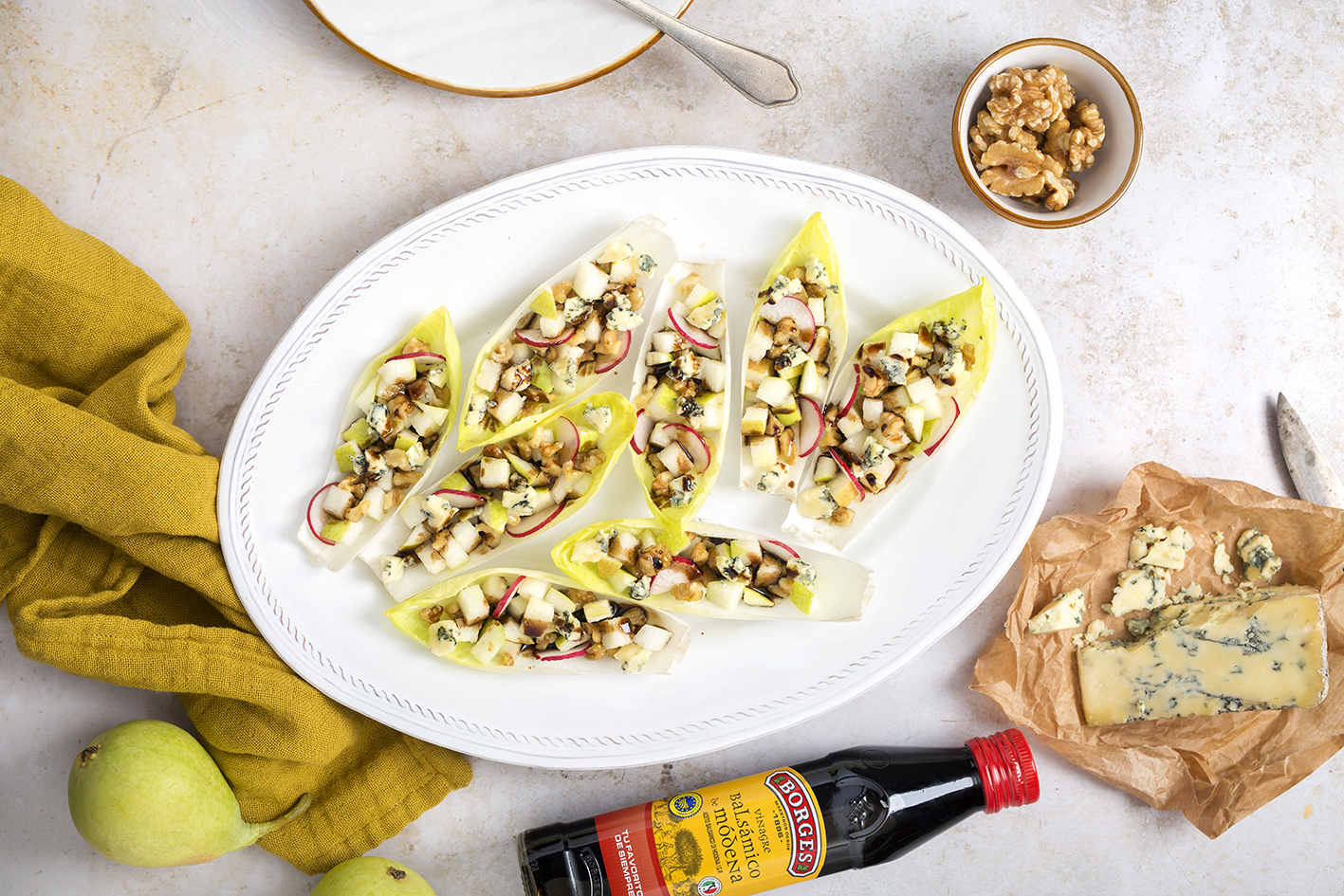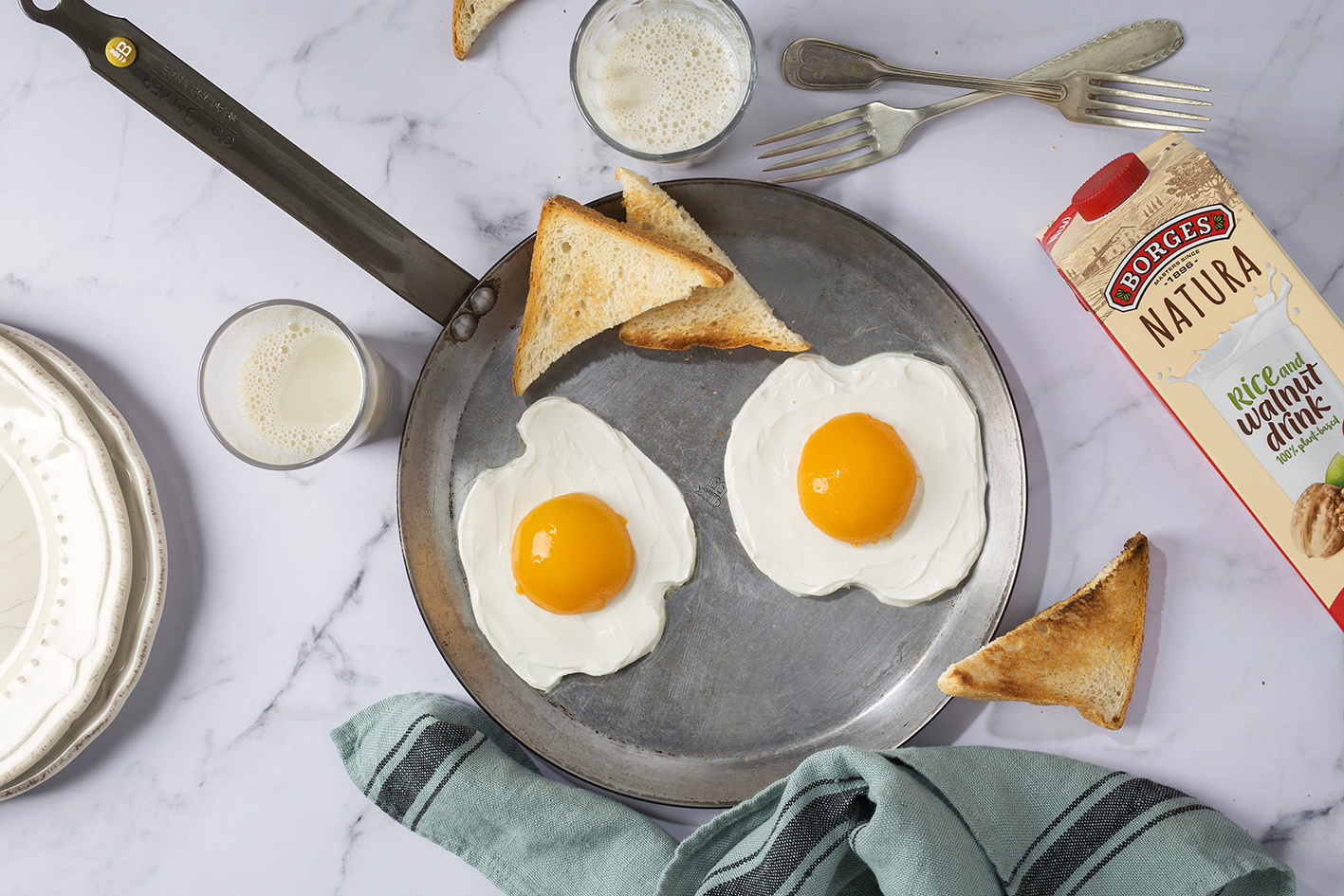If you had to sit down and try to count all the possible uses of olive oil, you’d soon run out of fingers, and that’s before you remembered all the ones you’d forgotten. Did you know that it’s great for relaxing muscles and soothing migraines and earache? Well, these are just of the uses we pointed out in our post on how to use olive oil outside the kitchen. Today, though, we’re staying in the kitchen, so get your apron on and let’s get going!
Au naturel: dressings and sauces
Extra-virgin olive oil is at its best in its natural state and can tingle all our senses. It’s equally delicious in a dressing or a chocolate mousse. Au naturel it’s also great for marinades and meat rubs, such as the traditional (and irresistible) garlic and paprika rub. These techniques, originally created to help food last longer, tenderise meat or mask strong smells, are now a regular feature in hundreds of recipes. If you haven’t already done so, try some of them out and you’ll see how simple it is to produce mouthwatering results.
And we shouldn’t forget that extra-virgin olive oil has been used for centuries to preserve fresh food such as meat, fish, cheese and vegetables, by protecting products from outside agents. It is perfect for making semi-preserves of vegetables, cheese in aromatic oil or sundried tomatoes and is a great way of always having fresh herbs to hand.
When the temperature rises
Although extra-virgin olive oil is at its best in its natural state, it’s still highly versatile when we turn up the heat. Why? Because it can withstand high temperatures without losing any of its properties or decomposing, which makes it a great ally when it comes to frying, for example. You can also use it to make confits (long cooking over a low heat), sweating (cooking over a low heat) and sautéing (tossed over a higher heat). As you can see, you can use extra-virgin olive oil in any cooking technique that calls for oil or fat.
And if we open the oven door, we can start adding more uses to the list. It’s a healthy substitute for butter when it comes to greasing oven dishes and it’s perfect for accompanying roasted and baked foods. A platter of oven-roasted vegetables with salt, pepper and a good drizzling of extra-virgin olive oil is simply irresistible!
Emulsions and sweet dishes
Extra-virgin olive oil is great for making foams and emulsions, which add body and texture to the accompanying ingredients. We can see this in vinaigrettes, pil-pil sauce (lovely with cod), mayonnaise, aioli and creamy salmorejo, but it works just as well with sweet foams. Since we know it’s a great substitute for butter or margarine, why not try it out when you’re making a sponge, biscuits or desserts such as rice pudding or crème caramel? Here are some examples of replacing butter with olive oil in recipes such as sponge cakes and béchamel sauce.


